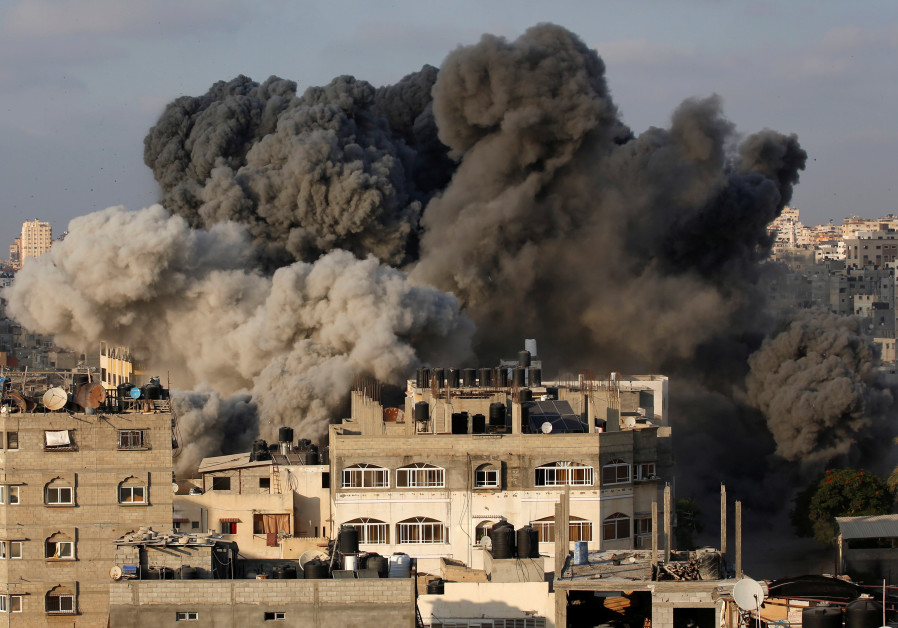 The Palestine Cauldron Boils on
The Palestine Cauldron Boils on
Posted by NDT Special BureauOctober 22, 2018
By NDT Special Bureau
Just over a fortnight back, Israeli Prime Minister Benjamin Netanyahu met with Egyptian President Abdel Fattah al-Sisi in New York on the sidelines of the United Nations General Assembly to discuss Gaza and revive peace talks with the Palestinians. The two leaders also “discussed regional developments and the situation in Gaza” during the two-hour-long meeting.
In recent months, mass protests along Gaza’s border with Israel have triggered repeated deadly clashes between Hamas militia and the Israeli army.
With each clash, there emerge clear warnings of the risk escalating the conflict several notches to a new level to be the new normal. The World Bank warned recently that the Gaza Strip’s economy is in “free fall”. The cuts to aid and salaries add to an already crippling Israeli blockade on the Hamas-run enclave.
Gaza is sandwiched between Israel and Egypt. A destabilised Gaza in the neighbourhood is not in Egypt’s interests. Hence, it is coordinating with the UN to broker a long-term truce between Israel and Hamas. Egypt was the first Arab country to sign a peace treaty with Israel in 1979. Amongst all the regional leaders, Netanyahu seems to have cultivated the best possible rapport with Sisi as both have met on several occasions since the latter came to power. President Sisi has also been discussing with Netanyahu ways of reviving the Israel-Palestinians peace process. Sisi told Netanyahu that “a final and just settlement to the Palestinian issue would contribute to providing a new situation in the Middle East.” However, such efforts have been stalled in recent weeks. Netanyahu told Israeli journalists that he would never relinquish security control over the West Bank.
In addition, Egypt is also mediating reconciliation talks between two Palestinian warring groups – religious fundamentalist Hamas and secular Fatah movement. Their spillover of decade-long bloody split in 2008 continues.
Palestinian President Mahmoud Abbas in his recent speech at the UN General Assembly was too critical of Israel’s recently passed ‘nation-state’ law. He termed it a racist law designed to erase the Palestinians’ link with their homeland. “Jerusalem is not for sale,” he said reacting to the American decision to recognise the city as Israel’s capital and to shift its embassy there. Donald Trump’s ‘deal of the century’ to bring ‘peace’ between Israel and the Arabs could legitimise the current status quo confining the Palestinians to Bantustans.
The implications of Abbas’s warning is that rather than dousing the conflict, Americans peace plan, to be implemented with the help of regional Arab countries, could initiate another intifada. When Jews reclaim the Haram al-Sharif to build the Third Temple, the danger of greater communal violence could conflagrate to reality.
Islamist group Hamas now controls Gaza. Fresh violence ensued along the Gaza border on October 12, killing seven Palestinians in clashes. Israel accused Hamas of using demonstrations as cover for attacks against the Jewish state, suspended fuel deliveries and threatened to inflict “very strong blows” on Hamas. “Hamas has apparently not understood the message – if these attacks do not stop, they will be stopped in another way, in the form of very, very strong blows”, Netanyahu said during the weekly cabinet meeting.
Confronted with never-ending Hamas militancy, Israel has now issued another threat to Hamas to desist from creating chaos in the region. Both the parties must try to end the continuous war and end it forever to ensure peace and stability in the region. Compromise seems to be the inevitable and the best possible solution under the circumstances.
But Iran’s strong backing of Hamas – which lays credence to the dictum that “Iran is Hamas,” complicates the matter further. This also makes Iran – Israel confrontation a closer, imminent and more dangerous possibility.
No comments:
Post a Comment